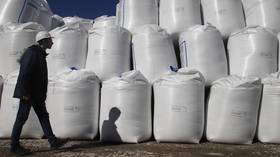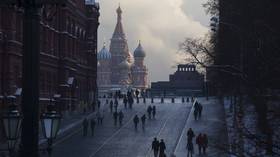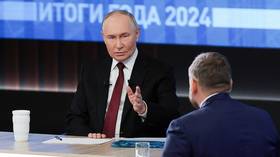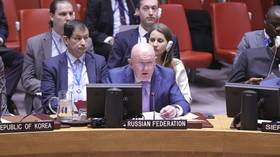Dutch MPs sound alarm over surging imports of Russian gas
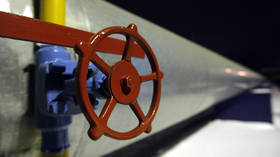
Dutch Parliament members have addressed the minister of foreign affairs to express concern over the EU’s increasing dependence on Russian gas.
In a letter submitted earlier this week, the MPs suggested that Russian pipeline natural gas is cheaper than liquefied natural gas, which is shipped to the EU by the US and others, adding that this hinders progress towards stable investments into more sustainable options and infrastructure for alternatives to Russian gas.
Prior to the escalation of the Ukraine conflict, Russia’s annual supplies to the EU amounted to around 155 billion cubic meters (bcm), primarily via pipelines.
Gazprom, once the EU’s main gas provider, dramatically reduced its exports to the bloc in 2022, following the sabotage of the Nord Stream pipelines. The Nord Stream 1 pipeline, which runs under the Baltic Sea and carried natural gas from Russia to the EU, along with the newly built Nord Stream 2, were ruptured by underwater explosions in September 2022, rendering them inoperable.
Ukraine-related sanctions introduced by Brussels against Russia haven’t targeted pipeline gas supplies so far, but many members, including Poland, Bulgaria, Finland, the Netherlands, and Denmark, have halted their imports voluntarily. However, several EU nations, including Austria, Slovakia, the Czech Republic, and Italy, are still importing Russian pipeline gas.
Moscow has rerouted most of the gas exports eastwards, sharply boosting sales to China which increased its pipeline gas purchases from Russia via the Power of Siberia pipeline to 22.7 bcm, compared with 15.4 bcm in 2022.
The remaining transit of Russian gas via Ukraine and Turkey currently amounts to around 15 bmc per year.
The five-year agreement between Gazprom and a Ukrainian operator expires at the end of 2024. The EU is planning to completely phase out energy imports from the country by 2027.
Last week, Reuters reported, citing data by the Gas Exporting Countries Forum, that Russian pipeline gas exports to the EU countries soared 24% in the first half of the year versus the same period in 2023. Earlier this month, the agency stated that supplies in June jumped by almost 23% from a year earlier.
